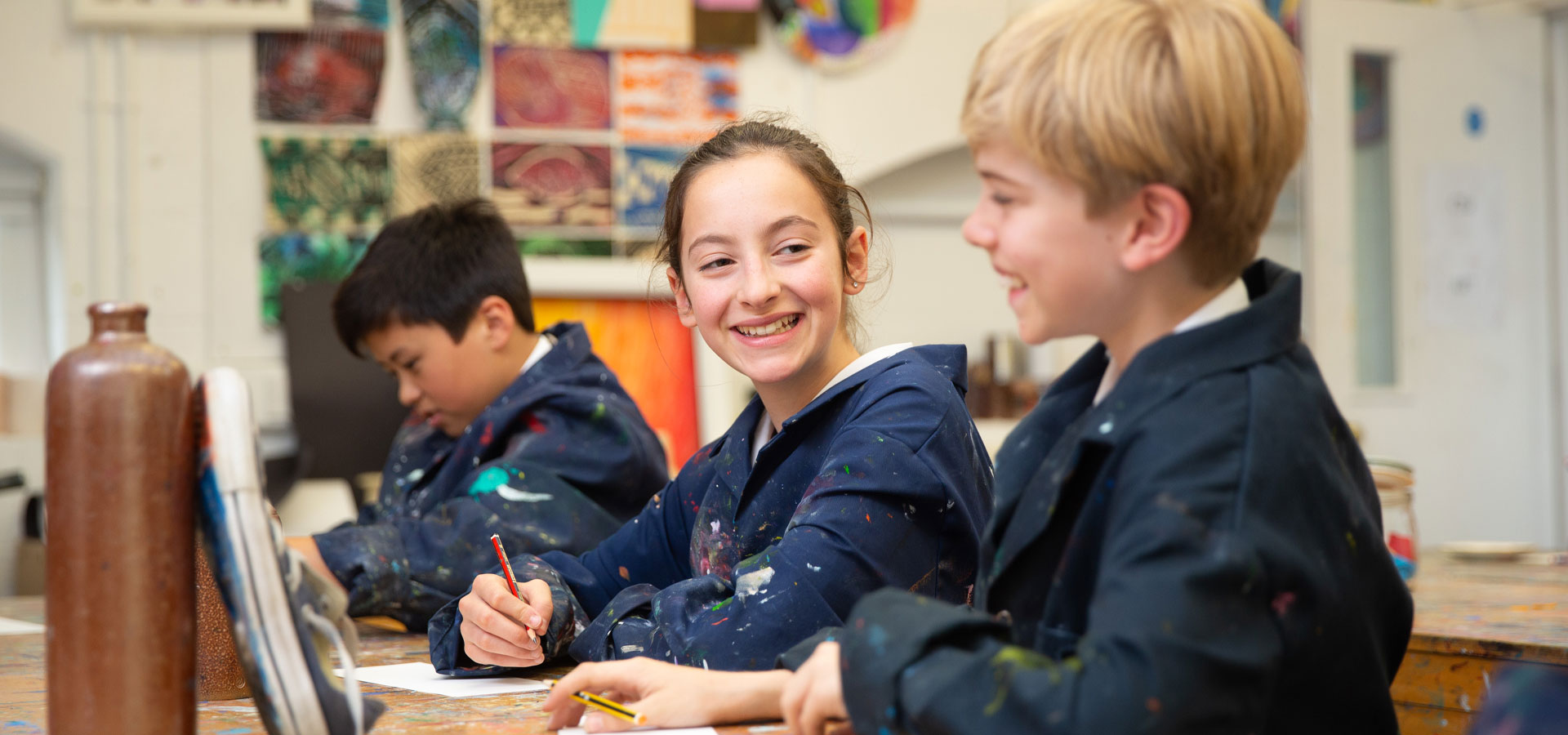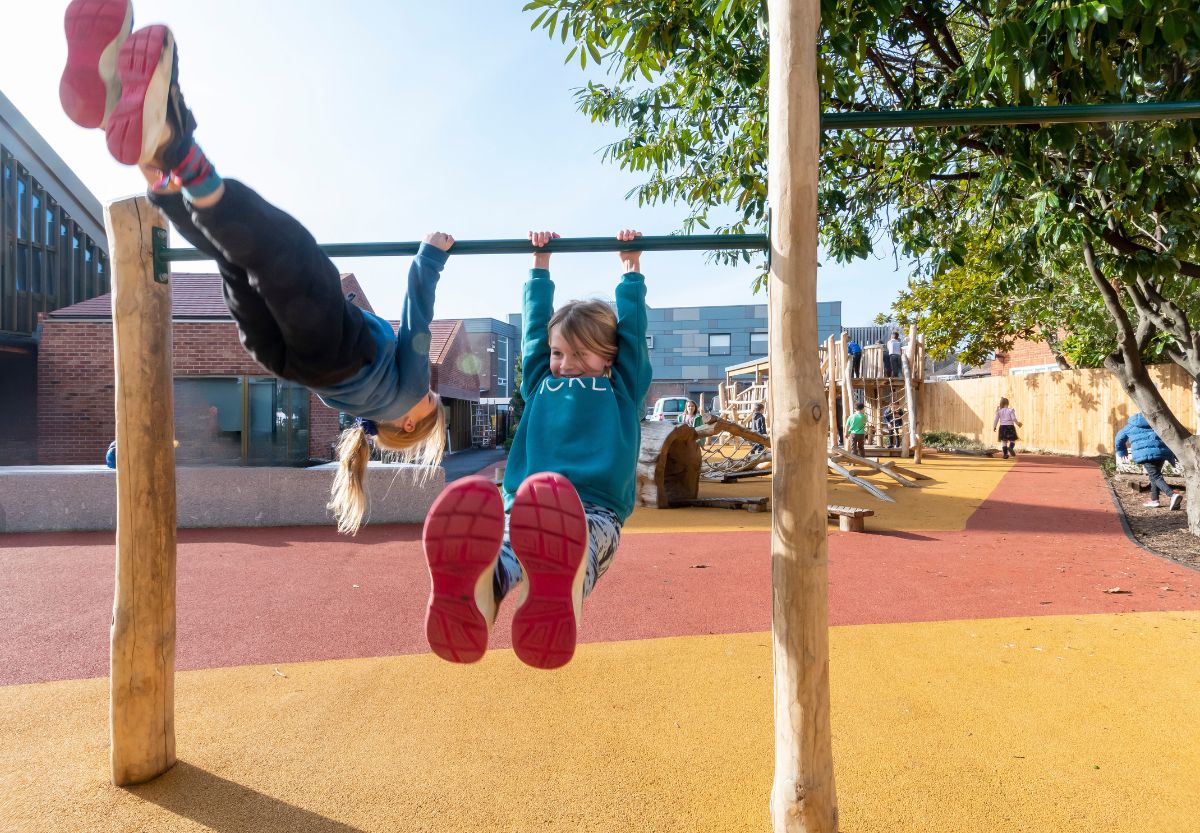Written by Alleyn's Head, Jane Lunnon.
It is not every day that you get to have lunch in the House of Commons with one of your idols. Still rarer, is the chance to do this surrounded by some of the most interesting educationalists, advocates, policy makers and charity workers in the country.
That is, however, the somewhat dizzying experience I had the other week, having been invited to lunch to meet the American social psychologist, Jonathan Haidt who has garnered a great deal of publicity recently following the publication of his most recent work: “The Anxious Generation” in which he explores the impact of smart phone technology on children and teenagers across the Anglosphere.
His findings make for depressing and salutary reading. On pretty much every measure you can think of: school alienation, loneliness, academic outcomes, socialisation, anxiety, self-harm, depression, sleep deprivation, digital addiction and much more, the data is stark – from 2015 onwards, he charts the dramatic collapse in flourishing and wellbeing in young people. He shows over and over again, in chart after chart, how directly this corresponds with the near ubiquitous use of smart phones from 2015 onwards. The issue is the impact of smartphone technology on developing brains, particularly during late childhood and early adolescence, when the creation of critical neural pathways is on overdrive. Whilst this point, in itself, is not new, there is something particularly striking about the amount of research data Haidt has collected, across so many measures which makes a pretty compelling case for the extent of damage being done by this still relatively new technology.
What is perhaps less frequently rehearsed, is the two-pronged nature of Haidt’s message. Yes, he addresses the damage done by the addictive and often harmful software which encourages potentially crippling comparison and body awareness but he also talks just as passionately about the stuff that all this time online has replaced. It is the combination of these two things that he claims has caused the great “rewiring of childhood”. The paradox he draws our attention to is that alongside far too much online freedom being given to children far too soon, we, the adults bringing up children, have also stifled and reduced the entirely necessary freedoms children should be experiencing in the real world. He argues that the gradual reduction of the thrill of unsupervised, adventurous physical play across the developed world since the 1980s, means that much of the completely vital social, physical, emotional and mental skills which children develop when they play together, in real spaces, have drastically declined. We have not given our children sufficient opportunities to take risks, be independent, explore, find things out, create imaginary environments, fail, get lost, locate themselves and each other in real physical and social landscapes and learn how to navigate these well –and the removal of these he suggests, has significantly stifled our children’s development.
So, that is his position, and I went along to meet him full of curiosity about this lively, impassioned writer who has long been arguing such counter-cultural messages in the US. What I found was a deeply likeable, courteous, amusing and very reasonable man who seemed strongly evidence-led, entirely immersed in research and had a genuine and deeply held conviction and concern for children.
Whilst surely none of us feel that we could put the smart phone genie back in the bottle (who doesn’t use their phone for even the most basic of daily functions – getting our news, finding our way, paying for our lives and so on?), there is a very strong argument for us, the grown-ups in the room, to recognise that this tech peddles meat which is simply too strong for the developing brains of teenagers and children. If we can restrict access to smart phones until (Haidt argues) the age of 16, the most vulnerable and susceptible part of adolescent development will be complete and young people will be more ready to respond to the various provocations and possibilities of the online world. And they will partly be ready for it, because of all the things they will have been able to do, precisely because they were not on their phones for two-thirds or even three-quarters of their daily lives!
This, along with far better age verification technology and the removal of all smart phones from schools, is what he is calling for. All of us in the room felt moved by his mission and it has inspired me to redouble our efforts at school, to ensure that those six hours of learning and living at Alleyn’s every day are genuinely phone-free experiences for our pupils up to the age of 16. We will be talking about what we might put in place to close any loopholes that might exist for our pupils – at the moment Middle School pupils must not have their phone in sight or in evidence during the school day – but what of those hidden moments? It feels like we need to think again (and with our pupils as well as with staff and parents) about how to do this better and we will be focusing on that in the coming months.
This is a great opportunity in fact for teachers, parents and pupils to work together. I have had some very interesting and illuminating conversations with older pupils at Alleyn’s and with my own children. Whilst they may not be entirely “over it” when it comes to the social media apps, they are well aware of the impact which they had on them when they were younger and there is a growing nostalgia for a less complex, digitally driven childhood experience. I asked Jonathan what likelihood he felt there might be for a Greta Thunburg style youth movement and he agreed that he could imagine such a thing happening – particularly if they could see, first hand, the damage being done to their outcomes and life chances.
So, there is promise and there is hope, not least in the conversations and discussions starting not just amongst the dismayed older generations, but amongst Gen Z themselves. And, excitingly, the UK has taken a leading stance on this matter, with the government mandating phone-free schools and age specific software.
Jonathan’s call to arms was to us as a nation, to save the world … if we lead, he believes, others will follow, and my promise is to think about what we can do here at Alleyn’s to help spread the word. I hope many parents and pupils will join us.
Published 15 May 2024.




.jpg)

.jpg)





















